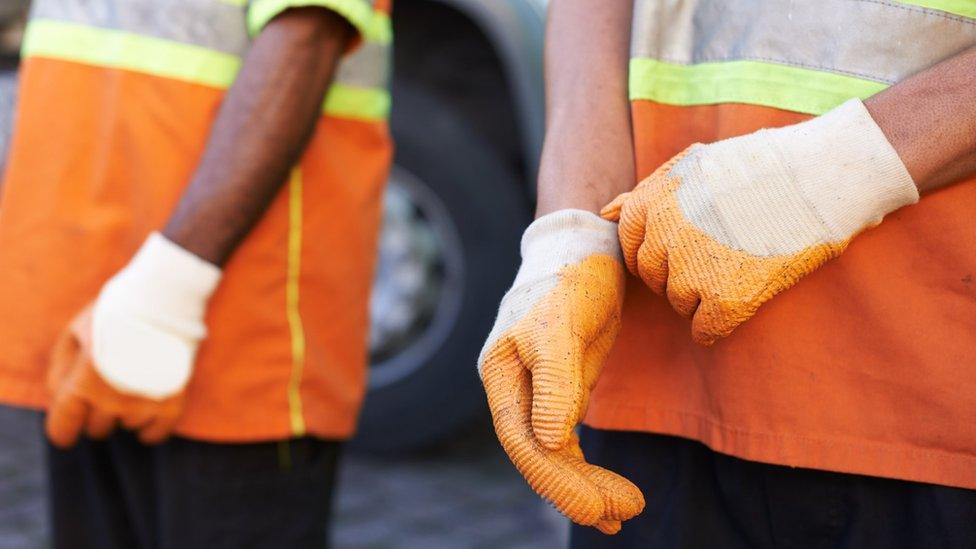Pay will continue to be squeezed, employers' survey suggests
- Published
- comments

It is the big unspoken issue of the election. Voters who, despite being in work, are not feeling any better off.
It is also the major economic trend in Britain - the "living standards squeeze".
And the most recent data suggests that it is about to tighten.
A survey of more than 1,000 firms, published on Monday by the Chartered Institute of Personnel and Development (CIPD) and the employment agency Adecco Group, suggests that businesses believe average pay rises this year will be just 1%.
That is the lowest figure for three years and well below the 1.5% the same survey suggested three months ago.
With inflation at 2.3% - a figure that is expected to rise sharply when April's number is published on Tuesday - employers are clearly not preparing for higher wage settlements.
Why? Well, according to the Bank of England, much of it comes down to uncertainty about the Brexit process.
Companies are still nervous about an economically disruptive exit from the European Union and are hoarding cash rather than rewarding employees.
Slow lane
People in work are also suffering an overhang from the financial crisis, which left many under threat of unemployment.
That did not materialise, with employees often sacrificing wage increases for job security.
The recession of 2009 also meant that businesses invested less in profit enhancing improvements such as new machinery or technological enhancements.
Productivity - the creation of wealth - suffered, and Britain's chronic problem of low productivity was exacerbated. The UK is in the slow lane
In the time it takes a British worker to earn £1, a German worker has earned £1.35.
UK productivity is also below that of France and America, and is not likely to return to its trend growth level of 2% per annum until 2020.
Some of that is down to unique factors that followed the financial crisis and some outfall from the referendum.
But, the 2008 crash and "Brexcuses" are not the whole picture.
Lib Dems promise to end pay squeeze
Spending squeeze to worsen, warns Bank
Minimum wage rises 'may cost jobs'
There are also more fundamental problems with the UK economy.
Too many businesses are poorly run, as Andy Haldane, the chief economist of the Bank of England, has pointed out.
If this "long tail" of firms improved the way they worked, Britain's productivity headache could be treated.
But there is little evidence of that as yet.
'No surprise'
"The good news in this latest survey is that employment confidence remains positive, with sectors like manufacturing and production proving particularly buoyant," said Gerwyn Davies of the CIPD.
"The bad news is that there is a real risk that a significant proportion of workers will see a fall in their living standards as the year progresses, due to a slowdown in basic pay and expectations of inflation increases over the next few months.
"This could create higher levels of economic insecurity and could have serious implications for consumer spending, which has helped to support economic growth in recent months.
"The weak pay data is no surprise given the continued weak productivity growth in the UK," Mr Davies said.
With less than four weeks to go before the general election, one thing is becoming clear. Whoever wins on 8 June will be facing a difficult opposition.
Not the one sitting opposite the Prime Minister in the House of Commons. But the economy across the country, where people will be facing the fact that they have worked hard all year only to see their income, in real terms, fall.